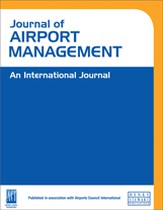A collaborative approach to business continuity and organisational resilience when dealing with a major crisis, such as COVID-19
Abstract
Most businesses are familiar with the notion of planning and developing contingency measures for foreseeable adverse situations or events that could affect their capability to deliver services or achieve their short-, medium- or long-term objectives. Not that many businesses, however, are fully prepared to face major or catastrophic events that are hard to foresee and predict. The aviation industry is currently dealing with the unforeseen and major impacts of the global COVID-19 pandemic. It is having to adapt and review established contingency plans as well as come up with new ways to mitigate the significant operational and economic impacts of this unpr ecedented situation. Airport operators have a key role to play in this situation coordinating the overall business continuity and resilience of the airport system. This paper explores some of the key aspects of tackling business continuity planning from an airport system approach, dealing not only with operational resilience but also with economic sustainability, and provides a case study of the appr oach taken at Geneva Airport in Switzerland.
The full article is available to subscribers to the journal.
Author's Biography
Thomas Romig is a graduate of Embry Riddle Aeronautical University where he obtained an Aviation Business Management degree. After four years with Airports Council International (ACI) World, Thomas took up the position of Safety Officer at Geneva Airport where he was in charge of ensuring regulatory compliance through the aerodrome certification process and implementing the safety management system. In 2013,Thomas changed roles to become the Department Head for the new Airport Operation Centre (APOC) where he was tasked with developing an airport-wide operational coordination and management centre with the aim of increasing the efficiency and performance of the airport system. Following four years in this function, Thomas took on the responsibility for developing the new Aviation Department managing all airside operations and developments. Finally, in 2019,Thomas took on a new role as Head of the new Operations Control and Development Department, in charge of managing the daily operations of the airport as well as identifying the future infrastructures and systems needed to meet forecasted demands. Throughout his time at Geneva Airport,Thomas kept a strong link with the international regulatory world through ACI, representing the association at European Union Aviation Safety Agency (EASA) and International Civil Aviation Organization (ICAO). He chaired numerous committees and working groups and championed multiple policy developments for the organisation in safety, operational, capacity and efficiency domains. In 2020,Thomas joined ACI in Montreal as Vice President Safety and Operations with a primary focus on the relations with ICAO, as well as other industry organisations, for furthering future regulatory developments that will move towards a sustainable and thriving aviation industry. This paper was developed by Thomas Romig in the first semester of 2020 while he was still with Geneva Airport, managing the COVID-19 task force, and prior to him joining Airports Council International towards the end of 2020.The paper was reviewed and finalised in early 2021 by Thomas in his new function at ACI World. The contact information provided reflects this new position, even though the paper was written when he was still employed by Geneva Airport.
